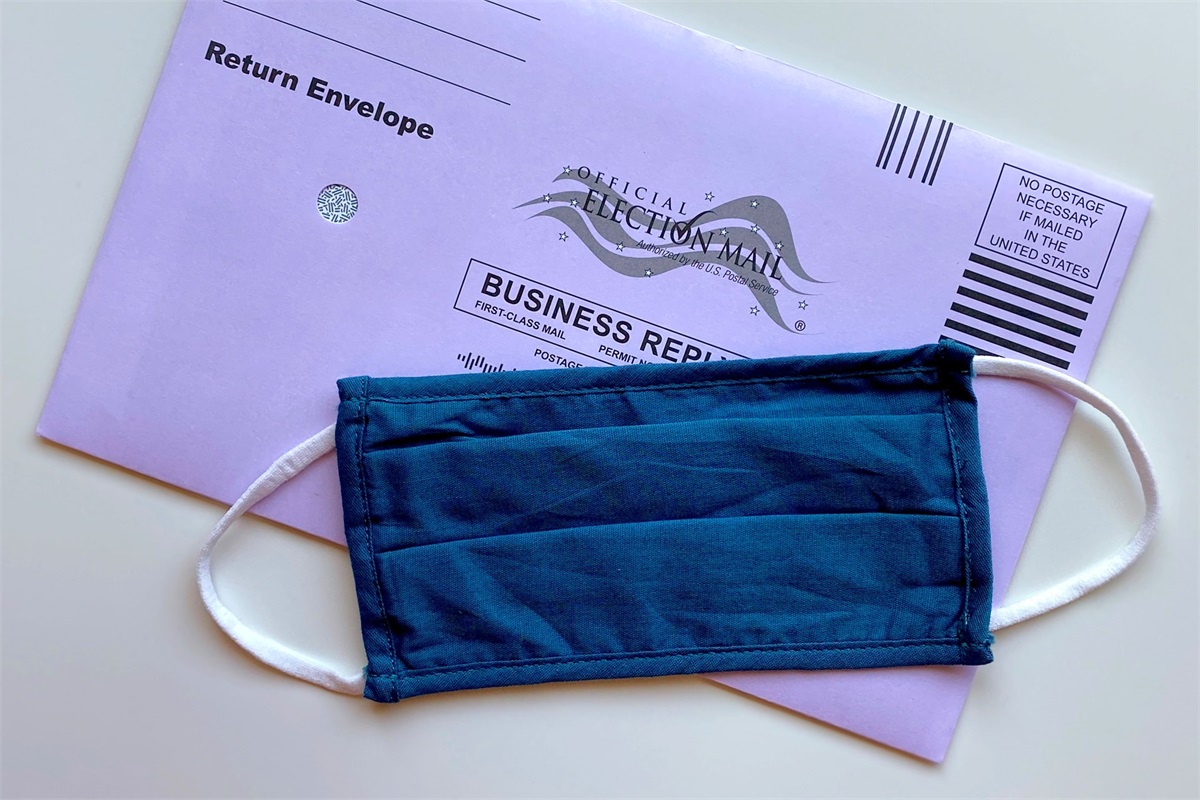
With the 2020 Presidential Election one week away, reporters, analysts and pundits are doing their best to predict the outcome of the contest. The uncertainty of who will win and what lies ahead can leave some investors feeling anxious. In the last year, over half of Americans say that this election is a stress factor in their lives. While the markets experienced volatility this year (especially in the spring) as a result of the uncertainty surrounding the COVID-19 pandemic, long term investors should remain committed to time tested principles and stay the course. Here are 3 reasons why the election results shouldn’t have a long-term impact on the market or market returns.
There is no correlation between the party in office and market returns.
The President is only one of many factors that influence the market. The chart below shows a hypothetical $10,000 investment in the Standard & Poor 500 Index starting in 1933, with blue representing Democratic presidents and red representing Republican presidents. Over the course of the last 90 years, stocks have done well in the long term with a mix of Democratic and Republican presidents. Forbes recently analyzed the markets in detail during each President going back to Harry Truman in 1945, and found that, “Market gyrations aside, investors can take comfort in the fact that in the long run, buy and hold worked best.” In 2004, the Federal Reserve also reported that from the period between 1927 and 1998, “neither risk nor return varies significantly across the presidential cycle.”

Influences other than the President can have a stronger impact on the market.
Forbes also notes that many factors influence the markets far more than politics. They quote Jeremy Siegel, author of Stocks for the Long Run: “Bull markets and bear markets come and go, and it’s more to do with business cycles than presidents.” Business cycles involve many macroeconomic (macro) factors, such as interest rates, inflation, economic outlooks, changes in policies, and wars. These may all have more impact than who resides in the White House.
Right now, one of the more important topics for markets and the economy is COVID-19. While social distancing and limits on openings remain in place in many parts of the United States, progress is being made on the treatment of the disease and a vaccine. We can look to the future for a resolution to this challenge and the ultimate reopening of all aspects of the economy. Things may look different post-COVID, including the loss of some businesses, but the U.S. economy is inherently strong. Where challenges and changes have occurred in the past, new opportunities emerge and growth resumes. We have no reason to believe that it will be any different during this election or challenging time.
Investments are about the long-term.
The election does come with certain risk factors. A contested election or one where the results are not certified quickly could temporarily be disruptive to markets and the U.S. economy. According to Business Insider, in the two weeks after the contested 2000 election, the markets dipped 5%. However, once the election results are finalized, the markets should stabilize. This is how the markets often operate. Political events can create short-term noise, but as the chart above also indicates, investments continue to grow. Day-to-day, markets may focus on events such as elections or new policies, but trends play out over months and years. For example, under Presidents Reagan (R ), George H.W. Bush (R ), Clinton (D ), and Obama (D ), market values grew between 15% and 16%, irrespective of political party, according to Axios.
At Marshall Financial Group we work closely with each client to design an investment strategy that incorporates market and economic factors along with individualized risk tolerance analysis to enhance progress on achieving financial and life goals. We remain dedicated to providing our clients with the exceptional investment management services they have come to expect from our team. Periodic portfolio reviews and investment strategy meetings with each client are the perfect opportunity to review the impact of multiple factors on a portfolio. Investors’ patience may be tried during these times of volatility, but are best served by staying the course.
